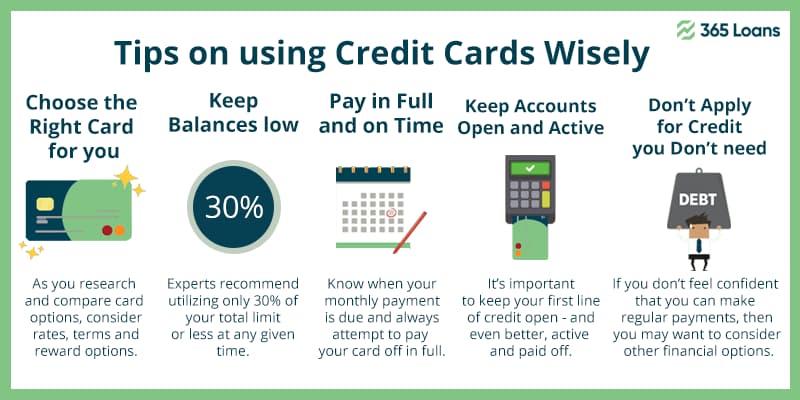Credit cards have many fantastic features and rewards; unless you end up paying high fees or interest, which could cancel out those advantages. Nevertheless, you can maintain a healthy credit score and take advantage of cardholder benefits by developing some important credit card habits.
A credit card may be a precious and practical financial tool to have in your toolbox if used wisely. But if you make a mistake – which we all occasionally do – you risk financially harming yourself. A lack of healthy credit card practices can make this tool more harmful than helpful, leading to a lower credit score, unpleasant interest, and other penalties.
Continue reading to find out what credit card habits you should incorporate into your daily routine to ensure you get the maximum benefits from your credit card without encountering any drawbacks.
1. Pay your balance on time
One of the most crucial habits you can develop is paying your credit card bill on time each month. If you miss a payment, you will incur interest and late fees, and your credit score may suffer.
Your payment history is crucial when it comes to your credit score. For instance, your payment history is the most significant contributing aspect to your FICO credit score, which accounts for 35% of your overall score. Therefore, late payments can have a significant negative impact on your score. On the other hand, consistently paying your debts on time can significantly raise your credit score.
2. Carefully examine your statement each month
Sit down and thoroughly analyze your monthly credit card statement after the month is closed. This assessment can validate that you made all the charges you are paying and that no fraud happened. You can also use it to reevaluate your spending patterns and budget.
Your credit card statement is an excellent tool for devising a strategy to pay off your balance. Your report will show how much you owe, when payments are due, the implications of late payments, and how much interest and fees you will have to pay.
You might also want to check out:
Although such a review takes only a moment, many people decide to skip it. However, semantically, it does not differ much from you checking the expiration date before you drink your milk or reading the gas gauge before deciding to go on a trip.
3. Be aware of your credit card fees
You should be aware of the following fees for each credit card you have:
- Annual fee: The best method to prevent this recurring charge is to obtain a card with no annual fee. Although cards with annual fees often offer excellent benefits, you must consider if those benefits offset the expense of the yearly fee.
- Late payment fee: Avoiding late payment penalties is a powerful habit you can employ. Make it a practice to pay your credit card balance on time each month. The law limits the amount credit card companies can charge for late fees, but late fees can quickly build up if you skip payments regularly.
- Cash advance fee: Some credit cards allow you to get a cash advance, but they usually charge you a percentage based on the amount borrowed.
- Balance transfer fee: If you want to transfer the debt to a balance transfer card, the credit card company may charge you a fee based on the amount transferred. Balance transfer fees are typically $5 to $10, or 3% to 5% of the transferred balance.
- Foreign transaction fee: If you travel internationally frequently, having a credit card with no foreign transaction fees might save you significant money. Check if your credit card charges foreign transaction fees every time you make an international purchase.
4. Immediately pay off large credit card purchases
If you make a large purchase, paying off your credit card amount as soon as possible is better than waiting for your end-of-month statement. Credit utilization accounts for 30% of your FICO credit score. Ideally, you should maintain your credit usage percentage below 30%.
Paying it off immediately if you make a large purchase that sends you over the 30% threshold will help maintain your credit score. Also, it is a smart method to earn cardholder benefits if you can afford to pay off significant purchases straight away.
5. Consider trailing interest
Residual interest (sometimes known as trailing interest) is a deceptive type of charge that many credit card customers are unaware of. If you have a credit card balance, residual interest is levied between when the credit card company delivers your statement and when it receives your payment.
Pay off your card in full each month to prevent trailing interest. If you have a balance but can pay it off, do not wait for the statement to arrive in the mail. Instead, check your balance and make a payment online.
Your credit card company will include real-time information about your remaining balance and any accrued interest on your online account. You can also inquire not only about your current balance but also about your repayment balance by phoning your credit card company. You can then make a payment that covers your balance and any remaining interest.
It is a good habit to use a different card that you should pay off in full every month, if you have to use it in the first place, until you repay your credit on your primary credit card.
Key takeaway
Once you understand the best credit card practices, you can develop healthy credit card habits that will allow you to make the most of your cards without incurring unnecessary fees or interest.

Paying off your total credit card balance each month, paying close attention to your statements, and having a plan to prevent fees and interest can allow you to enjoy the benefits of using a credit card while avoiding the drawbacks.







